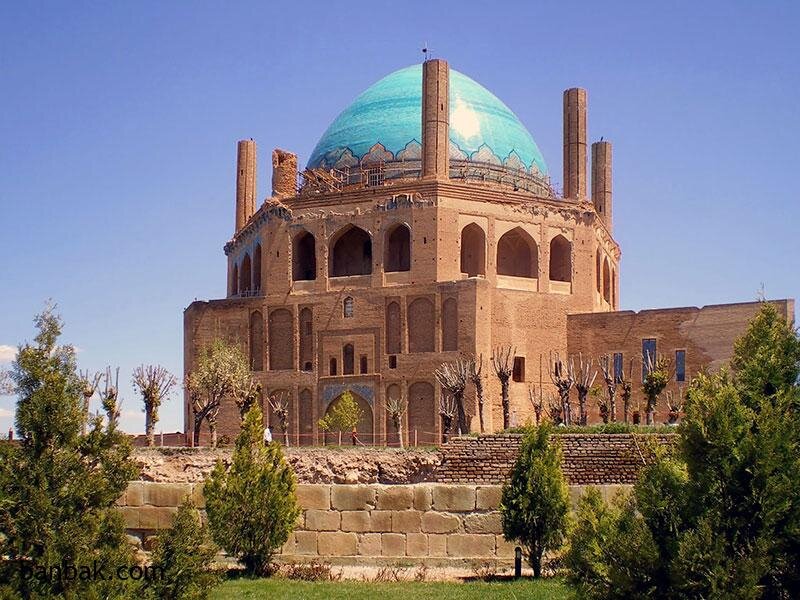Photo contest to spotlight UNESCO-tagged Soltaniyeh, nearby monuments

TEHRAN – The cultural heritage and tourism directorate of Iran’s Zanjan province is set to launch a photography contest on the UNESCO-registered Dome of Soltaniyeh and its surrounding historical and touristic sites.
Competitors are requested to post works to the Instagram account of the directorate from January 31 to February 9, provincial tourism chief Amir Arjmand announced on Tuesday.
A panel of professional media photographers will be judging the contest, and winners will be honored with exquisite prizes, the official said.
“This competition is to be held to highlight the importance of preserving natural and cultural heritage, monuments, antiquities, museums that exist in [the city of] Soltaniyeh,” he said.
The UNESCO-listed Mausoleum of Oljaytu, which is commonly known as “Dome of Soltaniyeh” (Soltaniyeh Cupola), is one of Iran’s must-visit destinations for those interested in traditional Persian and genuine Islamic architecture. The mausoleum is surmounted by one of the largest brick domes in the globe, though some mistakenly refer to it as “the largest dome in the world”.
Meaning “Town of the Sultans”, Soltaniyeh was briefly the capital of Persia’s Ilkhanid dynasty (a branch of the Mongol dynasty) during the 14th century. According to UNESCO, the Mausoleum of Oljaytu is an essential link and key monument in the development of Islamic architecture in central and western Asia. Here, the Ilkhanids further developed ideas that had been advanced during the classical Seljuk phase (11th to early 13th centuries), during which the arts of Iran gained distinction in the Islamic world, thereby setting the stage for the Timurid period (late 14th to 15th centuries), one of the most brilliant periods in Islamic art.
UNESCO says, “Excavations carried out in the 790-ha Mausoleum of Oljaytu property have revealed additional vestiges of the old city, and a large part of this property has retained its archaeological character. As the ancient capital of the Ilkhanid dynasty, Soltaniyeh represents an exceptional testimony to the history of the 13th and 14th centuries in Iran.”
The very large dome is the earliest extant example of its type and became an important reference for the later development of the Islamic dome. Similarly, the extremely rich interior of the mausoleum, which includes glazed tiles, brickwork, marquetry, or designs in inlaid materials, stucco, and frescoes, illustrates an important movement towards more elaborate materials and themes.
AFM/

Leave a Comment